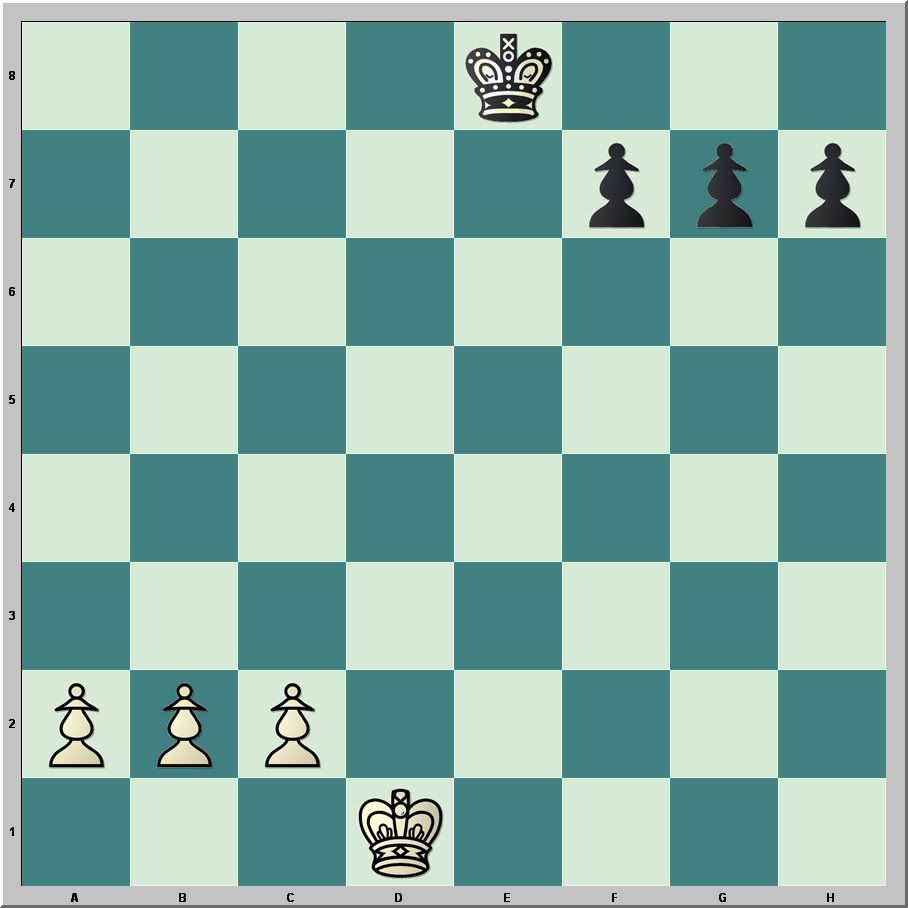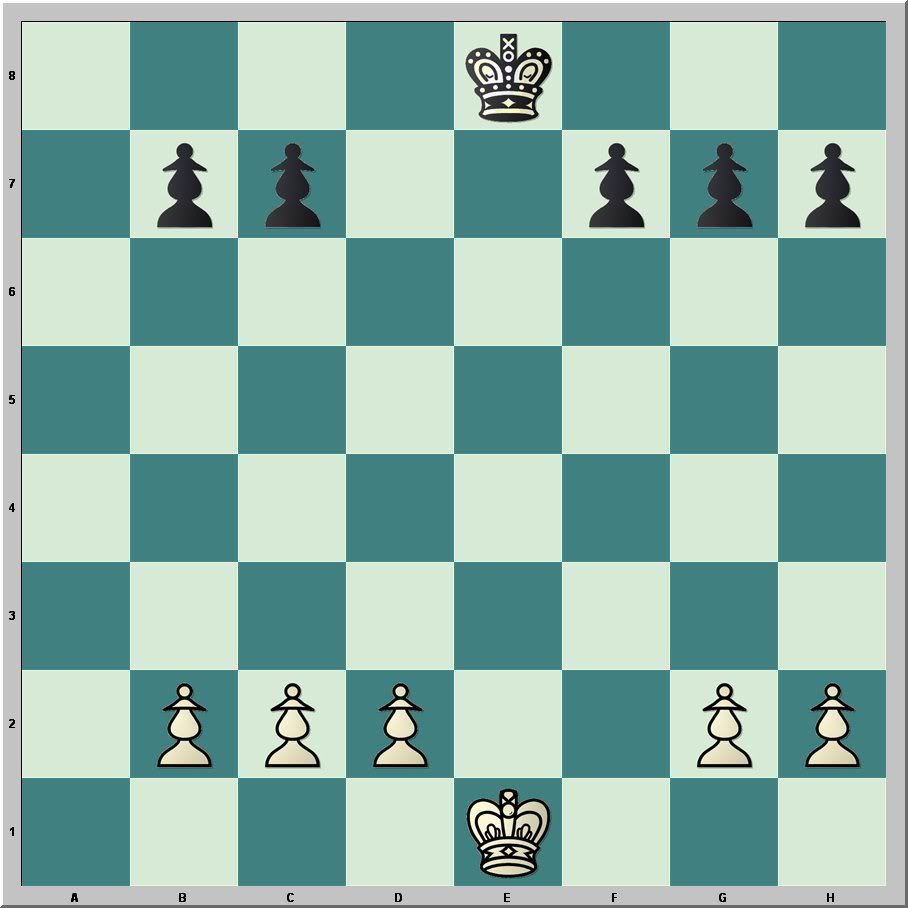After introducing the chess board and the pieces, for some time we only played "pawn wars". That means games where only the pawns participate without the rest of the army. The goal of the game was whoever queens a pawn first wins. Then later we added the kings and playing all the way to checkmate.I had found that young children enjoy what we had been calling the pawn game a few years before this book came out. After reading that passage a few years ago, I've increased my investment in pawn wars as a teaching tool. It is a central element in my private lessons with young students. In classrooms full of seven year old children, I start with pawns.
Polgar, 6-7
The game can be modified easily. Last spring, a kindergarten student that had been playing chess one month with his grandfather showed some promise, and his father made arrangements for me to offer some instruction. We played pawn wars with the kings. He started with eight pawns to my six--my rook pawns were missing. It took him perhaps two or three games to learn that he could lure my king to one side of the board by creating a passed pawn there, then create one on the other side that was outside my reach. After several victories, we played eight against seven.
One need not use all the pawns.
The classic Szén Position is a challenge even to strong players that still need work on the endgame. The player to move has a theoretical win, but precision is necessary to keep the win in hand.

According to David Hooper and Kenneth Whyld, The Oxford Companion to Chess (1996), the three pawn problem--a king against three connected passed pawns--had been studied for over two hundred years without success until Jószef Szén solved it in 1836.
Another variation of pawn wars that I've been using the past few weeks appears to be a theoretical draw. Remove the kings, and the player on move should win.













I to in my chess lessons let the kids play pawnwars. Although the pawns are evenly matched by me. I guess its a common thing in teaching children, not?
ReplyDelete